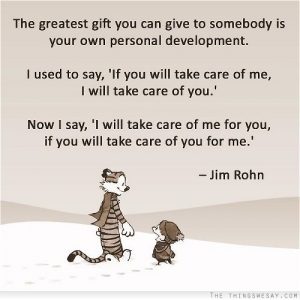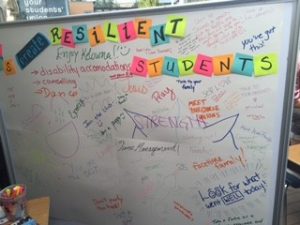Closely related to the practice of self-care (which we’ve discussed on this blog) is the practice of self-compassion. Dr. Kristen Neff’s pioneering research on the importance of self-compassion describes the sheer importance of honoring and accepting our pains and struggles as a part of the human condition. Instead of judging or criticizing ourselves when we fail, fall short, experience hurt, feel inadequate, or are challenged in this life, the practice of self-compassion urges that we treat ourselves with kindness, warmth, understanding, and a mindful approach during these tough times. Having compassion for ourselves during our pains and struggles eliminates resistance and frustration with imperfections, prevents over identification with our negative feelings, and encourages healthy processing of our emotional responses to the array events in our lives.
Self compassion is not merely self-esteem, self-pity, or self-indulgence. It is not based on self-evaluations as self-esteem is. Self compassion is not pitying ourselves, immersing ourselves in our problems; self compassion emphasizes that pain is a human experience that connects us all and thereby emphasizes the broader human context of our suffering, allowing us to achieve some perspective and some distance from our problems. Practicing self compassion does not mean indulging in every whim, either, especially if it is unhealthy; instead, self compassion encourages us to take care of ourselves in a manner which promotes growth, positive change, and overall wellness long term.
I personally find self-compassion most tangible when I meditate. There is a guided meditation on Dr. Kristen Neff’s website which I particularly love and want to encourage you to try if you’re struggling or suffering in parts of your life. And it is only 5 minutes! Check this self compassion guided meditation out! And if you prefer to read the guide instead of following the audio, this easy to follow exercise is also available.
 A month before the last term of my Counselling graduate program, I stumbled upon this cartoon while scrolling aimlessly down my Facebook newsfeed. I hadn’t known it at the time, but several months later as I wrote a final reflection paper for my program supervisor, this sentiment expressed by Jim Rohn epitomized one of the most valuable messages I learned in my three years of training to be a professional helper.
A month before the last term of my Counselling graduate program, I stumbled upon this cartoon while scrolling aimlessly down my Facebook newsfeed. I hadn’t known it at the time, but several months later as I wrote a final reflection paper for my program supervisor, this sentiment expressed by Jim Rohn epitomized one of the most valuable messages I learned in my three years of training to be a professional helper.